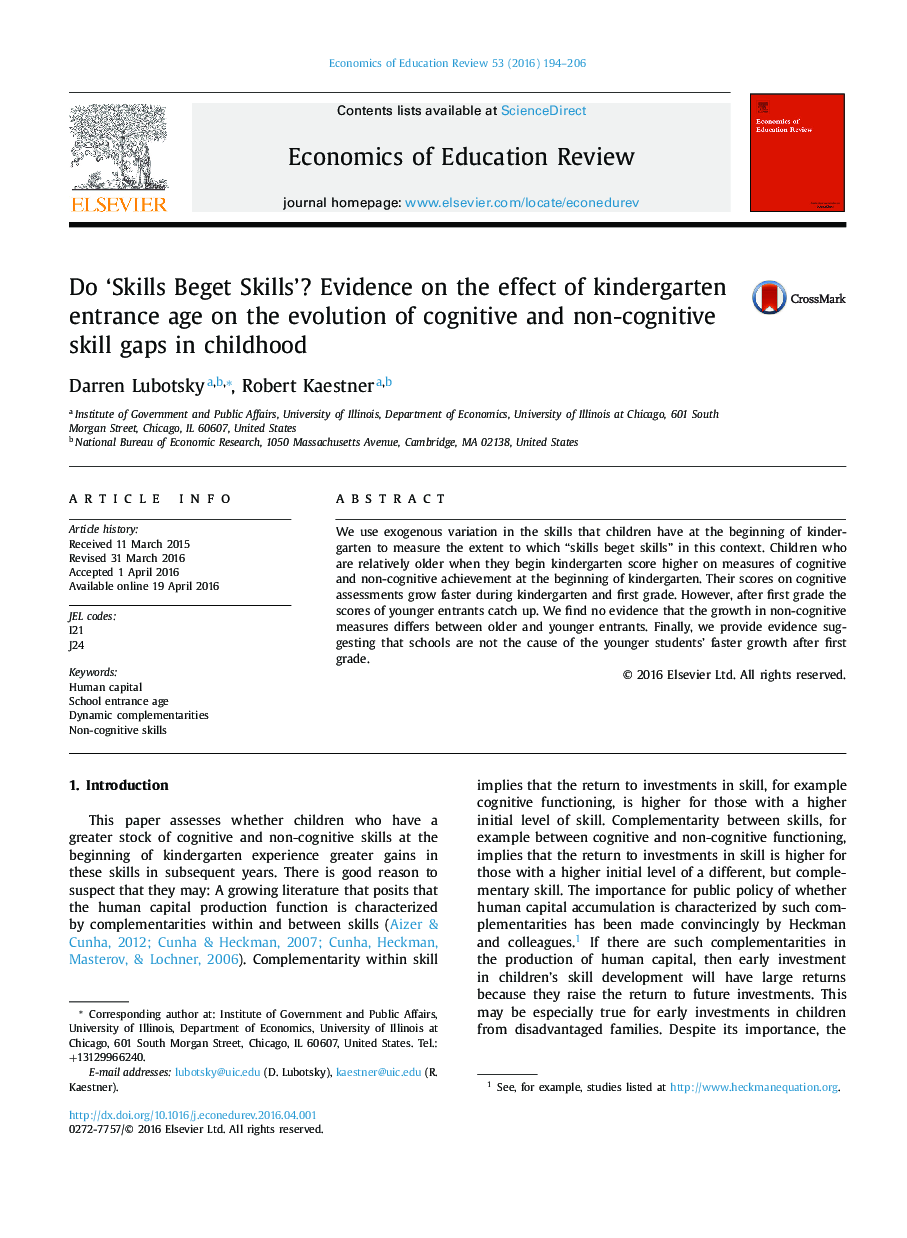| Article ID | Journal | Published Year | Pages | File Type |
|---|---|---|---|---|
| 354281 | Economics of Education Review | 2016 | 13 Pages |
•Older kindergarten entrants score higher on assessments of cognitive and non-cognitive ability at the beginning of kindergarten. We assess whether this initial advantage leads older entrant to have faster growth in these skills in subsequent years.•Older entrants’ score on cognitive scores on cognitive assessments grow faster during kindergarten and first grade. However, after first grade the scores of younger entrants catch up.•We find no evidence that the growth in non-cognitive measures differs between older and younger entrants.
We use exogenous variation in the skills that children have at the beginning of kindergarten to measure the extent to which “skills beget skills” in this context. Children who are relatively older when they begin kindergarten score higher on measures of cognitive and non-cognitive achievement at the beginning of kindergarten. Their scores on cognitive assessments grow faster during kindergarten and first grade. However, after first grade the scores of younger entrants catch up. We find no evidence that the growth in non-cognitive measures differs between older and younger entrants. Finally, we provide evidence suggesting that schools are not the cause of the younger students’ faster growth after first grade.
